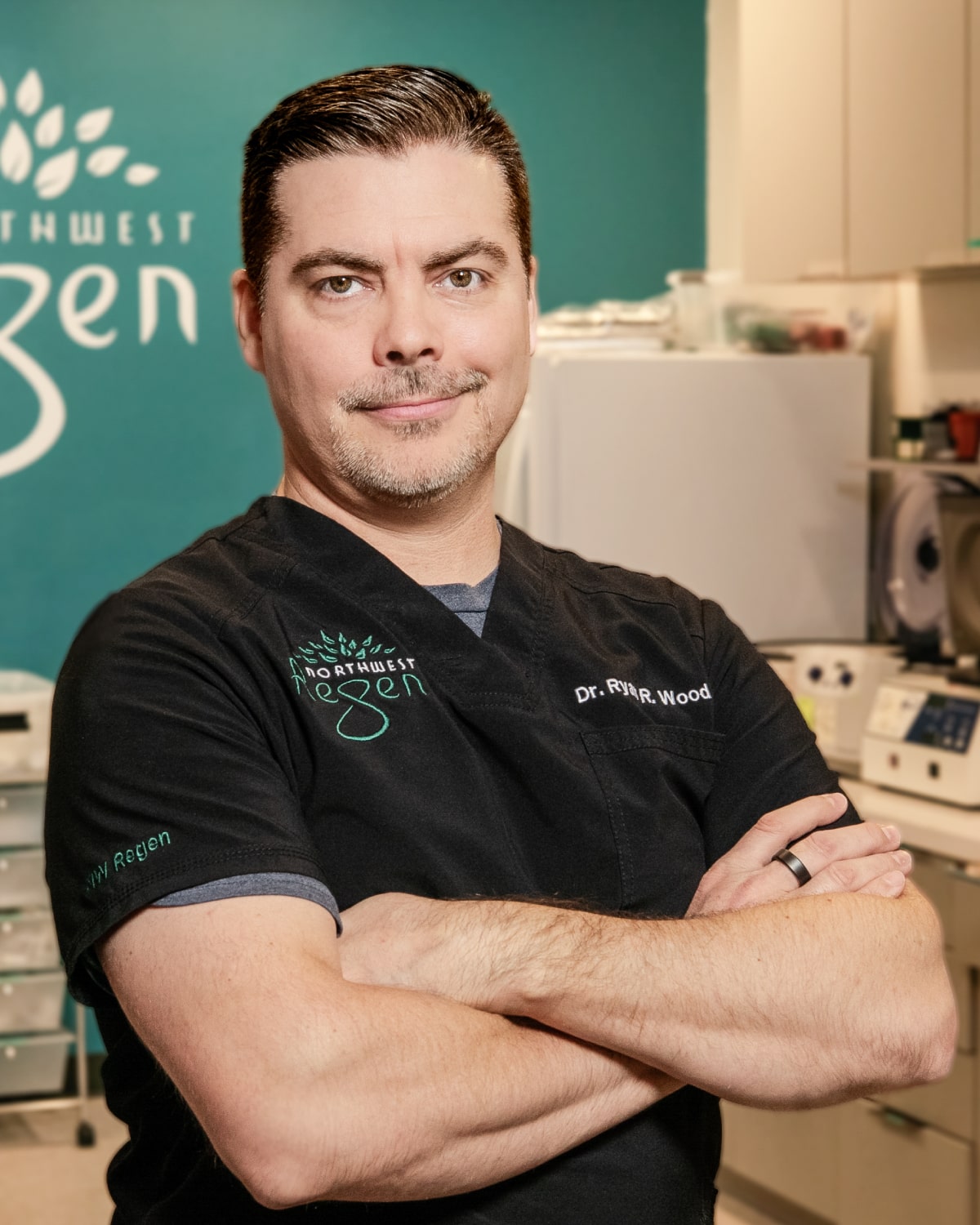As a doctor, I’ve heard all the clichés about not wanting to go to the doctor. Oftentimes, men will only visit a doctor’s office when their health is severe enough to force them—well, that or when their “other halves” force them. As a man, I get it … I’m even guilty of it myself.
After over 40 years of ice hockey (yes, you read that correctly), I’ve suffered needlessly through dozens of injuries when my colleagues could have offered treatments to heal me in weeks rather than months. However, through our inaction (and stubbornness), we are creating our own underserved community as it relates to Men’s Health.
I treat a lot of athletes and other high-performance individuals, and often they are aging men. As a doctor, the “locker-room talk” I hear during appointments enables me to hear the real-life issues men are having—a bad shoulder, an aging knee, or a chronic ankle sprain. Discussions based on these physical ailments tend to morph into a discussion about emotional challenges, including confidence, worries, pains, and the physical and sexual changes that are common in aging men.
I have two children, a stunning partner who is also my best friend, and a cutting-edge medical clinic in regenerative orthopedic and interventional procedures, all of which demand my unending energy, drive, and focus. I am required to perform at extremely high levels on a daily basis.
However, I see and understand the subtle changes that come along with the graying hair. I understand that certain tasks are not as easy as they were even five years ago. I understand the complexities of these changes and how to address them. Many times, these changes relate to declining testosterone levels.
The Common Effects of Low Testosterone
Testosterone is the hormone that helps to maintain a man’s physical and emotional well-being. For most men, testosterone levels decrease as their age increases, similar to decreasing estrogen levels for women. The difference is that women will talk about the issues they have and get the help they need much sooner than men.
Symptoms of low testosterone levels can include many common complaints among older men, including:
- Changes in sexual function and desire
- Physical changes affecting overall weight, muscle mass, and hair loss
- Reduced strength, energy, bone density, and endurance
- Decline in a sense of well-being
- Sleep changes, including trouble falling asleep and/or staying asleep
- Emotional changes affecting motivation or self-confidence and difficulty concentrating
- Generalized joint aches and pains without the presence of injuries
Low Testosterone Treatments
At Northwest Regen, we can perform a simple blood test to detect testosterone levels and determine if low testosterone is the cause of any of these complaints. Working together with our patients, we then develop a customized treatment plan to help men with low testosterone to restore their levels … and their well-being.
The three most common forms of treatments are injections, pellets, and topicals. While the results are generally the same, each option has a different approach.
Injections are often done weekly, pellets are implanted under the skin and replaced every three to six months, and topical gels are applied onto certain areas of skin. Each treatment is discussed at length to determine the best course of action for that particular patient.
Too often, men think of doctors as a last resort. They feel their issues are private and are uncomfortable talking about their symptoms. However, as we all know, we need to get comfortable with being uncomfortable for our own well-being at times. Instead of a last resort, doctors should be a lifelong first resort, assisting us in taking a more proactive approach to our health.
With increased knowledge of common symptoms and issues that arise as we age, we can develop effective, individualized, quality care.
If you suffer from any of the common complaints listed above, are concerned about low levels of testosterone, or have other questions, contact our office for a free consultation.

Dr. Ryan Wood is a licensed Naturopathic and Chiropractic physician focusing on interventional orthopedic and orthobiologic medicine and injection therapies as well as general musculoskeletal and non-surgical orthopedic medicine.
With almost two decades of orthopedic practice across multiple disciplines, he has the necessary experience to ensure proper diagnoses and management of complex cases.


